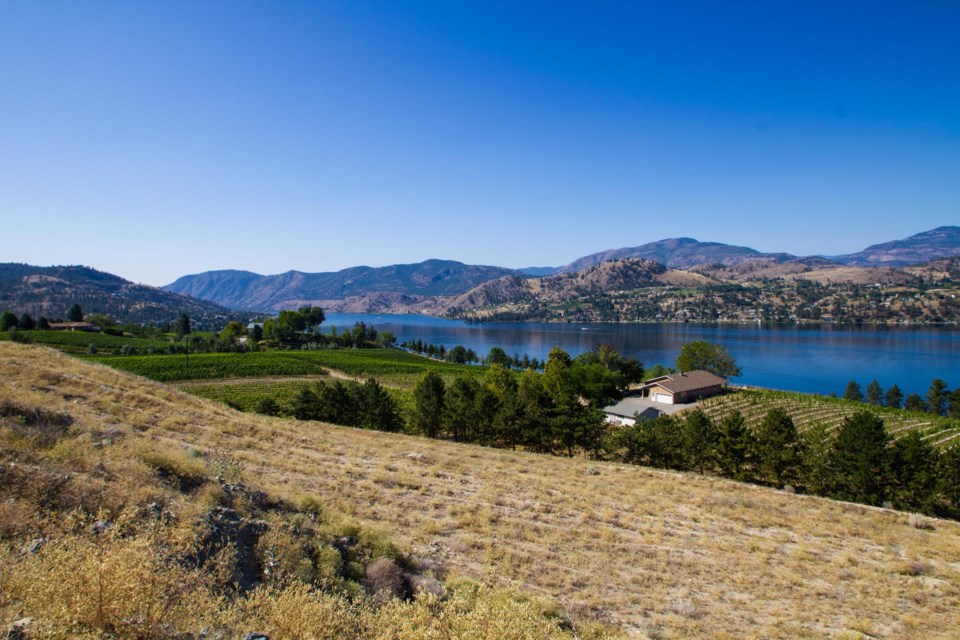A B.C. property developer has been handed nearly $200,000 in administrative penalties for failing to maintain a wastewater system that leaked human effluence into an orchard-turned-vineyard and a public road.
In a series of documents, the Ministry of Environment and Climate Change Strategy says Vintage Views director and owner Johnny Aantjes repeatedly failed to comply with provincial requirements to report on and maintain the wastewater system built for 120 homes in the Heritage Hills development near Okanagan Falls, B.C.
The wastewater system, which was originally designed to process triple the sewage, was scaled back when the development was transferred to Vintage Views Development Inc. in 2009. In 2012, Aantjes said he took over management of the 18-acre development overlooking Skaha Lake.
“It's kind of unfortunate it's got to this level without, you know, some sort of a remedy sooner,” Aantjes said. “We have a notice of appeal in.”
The latest penalties, handed to Aantjes in June, come after years of alleged violations of provincial regulations. Between 2013 and 2022, the ministry carried out nine inspections, issued four warnings and four administrative penalty referrals.
Penalties ramp up amid sewage leaks
In May 2019, the province issued a pollution abatement order after receiving reports effluence surfaced in an orchard near the residential development. That fall the ministry issued another order to contain the surfacing sewage, and repair and better monitor the wastewater system. But only a month later, staff from the Interior Health Authority reported effluence flowing on to a nearby public road.
Water samples taken from a domestic well 150 metres from the disposal field exceeded provincial and federal guidelines for nitrates and coliform, according to a ministry penalty assessment.
Further non-compliance triggered the province to prohibit Vintage Views from hooking up new units at the housing development. In response, the Regional District of Okanagan-Similkameen said it wouldn’t issue building permits until the order was cancelled. Barred from building their homes, an estimated 20 property owners reached out to local politicians to complain throughout 2021 and 2022, according to the province.
Then, in April 2022, the ministry issued three penalties totalling $19,300, that have since been paid.
The next month, local farmers installed a vineyard over the field where treated sewage was sent. Planting the vineyard led to the damage of several valve boxes, inspection ports and discharge pipes. More human effluence leaked to the surface, say government documents.
Aantjes acknowledged there was a failure in the effluent field that led to overflow. But he said the damage wouldn’t have happened if people were not pulling out an orchard and planting a vineyard over top of the wastewater system.
“I'm powerless to make the farmers and/or their lease operators remove these [vineyards]. But yes, some of the damage has come from them working their fields overtop of this effluent field,” he said.
Aantjes said he couldn’t speak to all of the allegations levelled against him by the province because staff manage the day-to-day operation of the wastewater facility. He said the details would be addressed in his appeal to the province.
Fecal coliform levels spike nearly 25,000 times provincial limit
Fecal coliform has traditionally been used as an indicator of fecal contamination, and a warning sign of the possible presence of disease-causing bacteria, viruses and protozoans. Often originating in the gut of warm-blooded animals, water contaminated with high concentrations of fecal coliform can spread harmful bacteria through the food chain, through crops eaten raw after being irrigated with polluted water.
Between August 2020 and May 2022, 16 effluent samples at the Heritage Hills development exceeded the provincial fecal coliform limit by an average of almost 5,000 per cent; in one case, fecal coliform levels spiked up to 24,700 times the provincial limit, representing a failure to meet “fundamental requirement of wastewater treatment,” the ministry said.
Over that time, the inspectors found Vintage Views had an 82 per cent failure rate when it came to monitoring fecal coliform, even though it had been warned of the requirement over the three previous years.
“The exceedances were significant,” wrote the ministry in a summary of the penalties. “All fecal coliform samples analyzed during the inspection period exceeded the limits. There is no indication that corrective measures were taken to correct the high fecal coliforms.”
Extra penalty for 'deliberate' contraventions
In one instance, the ministry bumped up the administrative penalty by $6,000 for the “deliberate nature of the contraventions despite being previously advised of them.”
“Failure to report surfacing of effluent, which must be assumed to contain pathogens, in an area frequented by people and accessible to wildlife, and in a location that may impact a domestic drinking water well, prevented the Ministry from taking action to prevent potential acute adverse effects,” the report notes.
Aantjes denied he or his staff had deliberately contravened any provincial regulation.
“There were definitely mistakes that were made by us,” he said. “We do not do anything deliberately to contravene with the safety that's out there. That does not happen.”
As the dispute between the developer and the province continues, 20 homeowners who are still waiting to build their homes at Heritage Hills have been left in limbo, unable to move in with their young families or comfortably retire.
Aantjes said he’s willing to work with the province to transfer the wastewater treatment system to public control but wants to be paid a fair market value — something on the order of $300,000.
“We're not ripping it out of the ground. It's not going anywhere,” said Aantjes of the sewage system, adding he's working at finding a solution with the province.



